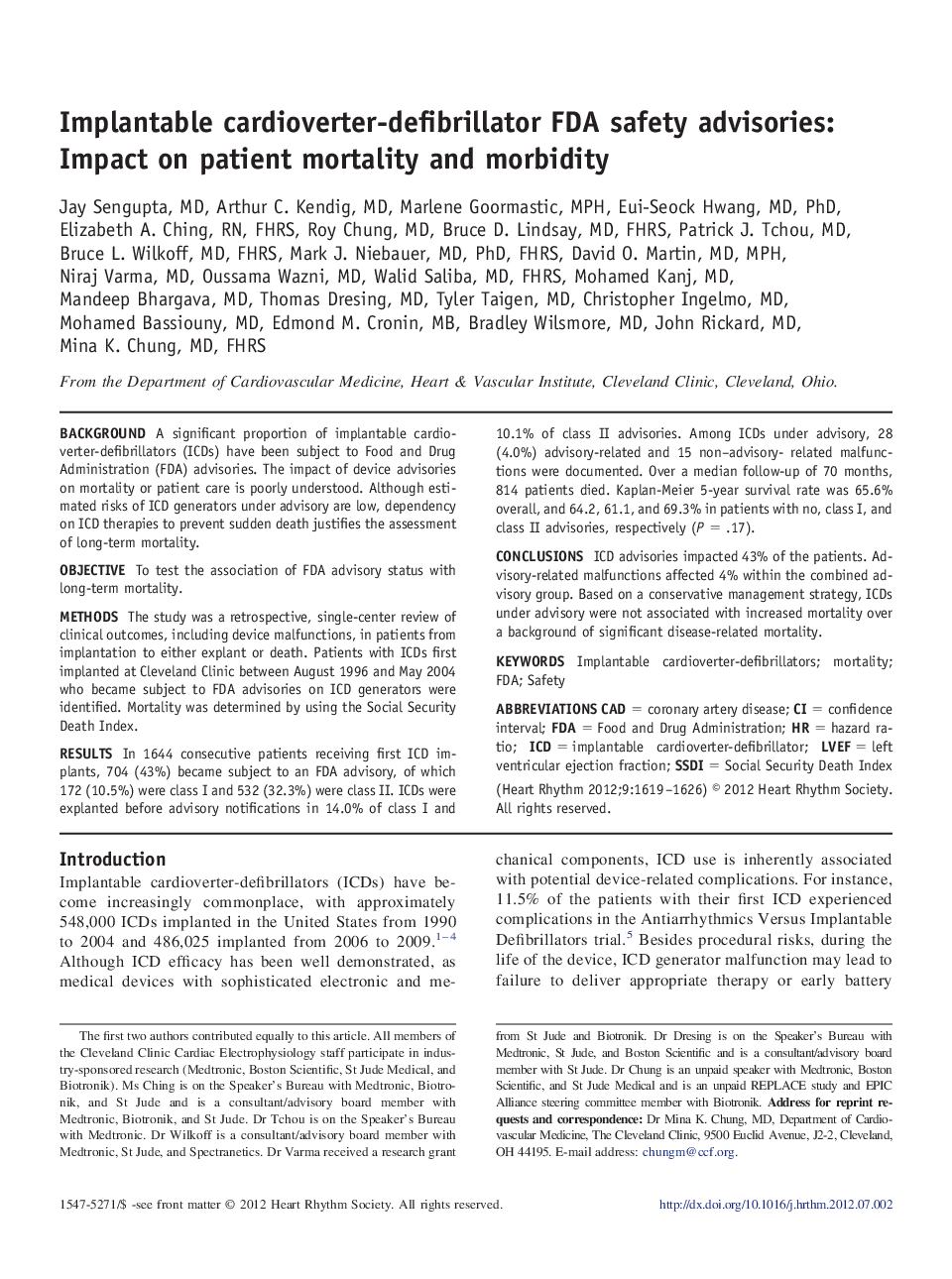| Article ID | Journal | Published Year | Pages | File Type |
|---|---|---|---|---|
| 2922602 | Heart Rhythm | 2012 | 8 Pages |
BackgroundA significant proportion of implantable cardioverter-defibrillators (ICDs) have been subject to Food and Drug Administration (FDA) advisories. The impact of device advisories on mortality or patient care is poorly understood. Although estimated risks of ICD generators under advisory are low, dependency on ICD therapies to prevent sudden death justifies the assessment of long-term mortality.ObjectiveTo test the association of FDA advisory status with long-term mortality.MethodsThe study was a retrospective, single-center review of clinical outcomes, including device malfunctions, in patients from implantation to either explant or death. Patients with ICDs first implanted at Cleveland Clinic between August 1996 and May 2004 who became subject to FDA advisories on ICD generators were identified. Mortality was determined by using the Social Security Death Index.ResultsIn 1644 consecutive patients receiving first ICD implants, 704 (43%) became subject to an FDA advisory, of which 172 (10.5%) were class I and 532 (32.3%) were class II. ICDs were explanted before advisory notifications in 14.0% of class I and 10.1% of class II advisories. Among ICDs under advisory, 28 (4.0%) advisory-related and 15 non–advisory- related malfunctions were documented. Over a median follow-up of 70 months, 814 patients died. Kaplan-Meier 5-year survival rate was 65.6% overall, and 64.2, 61.1, and 69.3% in patients with no, class I, and class II advisories, respectively (P = .17).ConclusionsICD advisories impacted 43% of the patients. Advisory-related malfunctions affected 4% within the combined advisory group. Based on a conservative management strategy, ICDs under advisory were not associated with increased mortality over a background of significant disease-related mortality.
